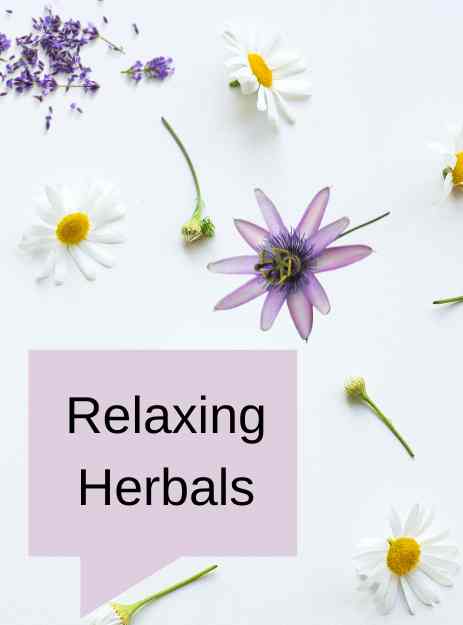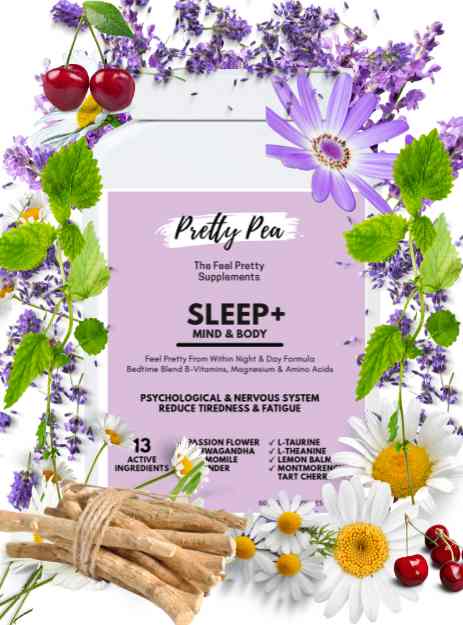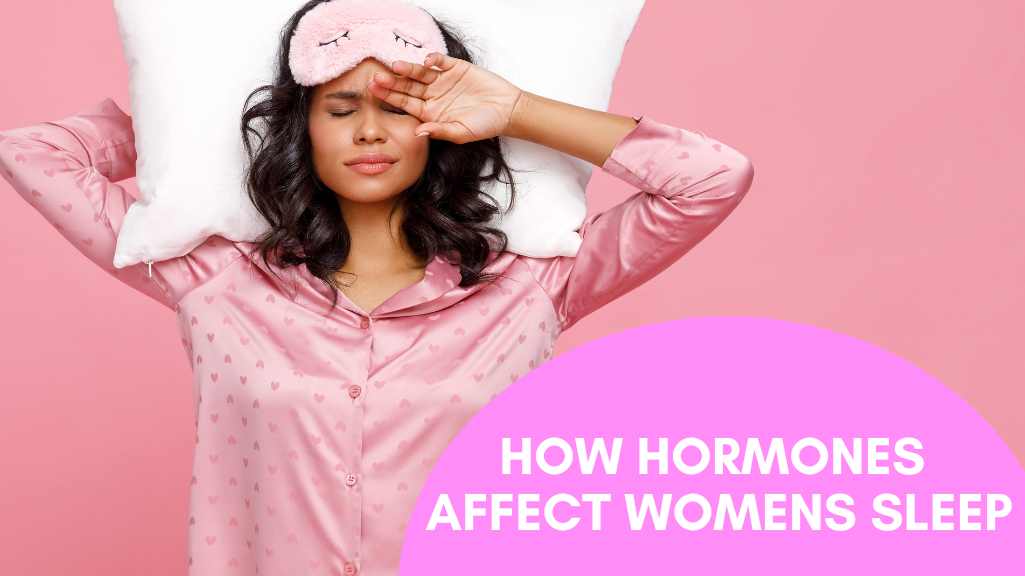Sleep is a fundamental aspect of our well-being, affecting everything from mood and cognitive function to physical health. For women, sleep can be particularly complex due to the role that hormones play throughout their lives. Hormonal fluctuations linked to the menstrual cycle, pregnancy, menopause, and even stress can significantly impact sleep quality. In this article, we will explore how hormones affect sleep and share 3 best herbal sleep supplements that can help achieve a restful night’s sleep.
The Role of Hormones in Women’s Sleep
1. Estrogen
Estrogen is a primary female sex hormone that has a considerable influence on sleep. This hormone is involved in regulating the sleep-wake cycle by influencing serotonin levels, which is a neurotransmitter that helps regulate mood and sleep.
- Impact on Sleep: During the menstrual cycle, estrogen levels fluctuate, peaking during the follicular phase and dropping after ovulation. This decline in estrogen can lead to sleep disturbances, mood swings, and increased sensitivity to pain, which can all affect sleep quality.
- Perimenopause and Menopause: As women approach menopause, estrogen levels significantly decline, which often results in hot flashes, night sweats, and insomnia. Research has shown that low estrogen levels are linked to difficulty falling asleep and staying asleep, as well as poorer overall sleep quality.
2. Progesterone
Progesterone, another critical hormone in the menstrual cycle and menopause, also plays a role in sleep regulation. It has a calming effect on the body and is known for its sedative-like properties.
- Menstrual Cycle: Progesterone levels are higher in the luteal phase (after ovulation), which can lead to more restful sleep. However, if progesterone levels are low, it can contribute to sleep disturbances and anxiety, which may keep you awake at night.
- Pregnancy: During pregnancy, progesterone levels increase significantly, especially in the first trimester, which is one reason why many women feel excessively tired and sleepy. This hormone helps prepare the body for sleep, although its effects may vary throughout pregnancy due to other hormonal shifts.
Progesterone Levels During Menopause
During perimenopause, the transitional phase leading up to menopause, progesterone levels begin to decline significantly. This decline continues into menopause when ovulation ceases entirely, resulting in very low levels of both progesterone and estrogen.
- Impact on Sleep: The decrease in progesterone during menopause can have a pronounced effect on sleep quality. Lower progesterone levels are associated with increased anxiety, mood swings, and insomnia. Women often report difficulty falling asleep and staying asleep during this time, which can be attributed to the lack of progesterone’s calming effects. Additionally, the absence of progesterone can exacerbate the effects of declining estrogen levels, leading to increased hot flushes and night sweats, further disrupting sleep.
3. Melatonin
Melatonin is the hormone that plays a direct role in regulating the sleep-wake cycle. It is produced in the pineal gland and signals the brain that it’s time to sleep as darkness falls.
- Impact on Sleep: The production of melatonin can be influenced by estrogen levels, meaning that when estrogen is high, melatonin production can be disrupted. This is why many women experience sleep problems during times of hormonal changes, such as menstruation, pregnancy, or menopause.
- Age-Related Decline: Melatonin levels naturally decrease with age, which partly explains why many older adults, including women in menopause, experience insomnia or difficulty falling asleep.
4. Cortisol
Cortisol is the body’s primary stress hormone, released in response to stress and low blood-glucose concentration. It also plays a part in the sleep-wake cycle.
- Impact on Sleep: High levels of cortisol can cause insomnia or disrupt sleep by making it difficult to fall asleep or stay asleep. This stress hormone is supposed to be at its lowest during the evening, but if stress levels are high or the body’s rhythm is off, cortisol levels can remain elevated, leading to restless sleep or early waking.
- Chronic Stress: Women who experience chronic stress may have persistently high cortisol levels, which can negatively affect sleep and contribute to sleep disorders over time.
5. Prolactin
Prolactin is another hormone that affects sleep and is linked to the sleep cycle. Its levels are typically higher during sleep, and it plays a role in sleep depth.
- Impact on Sleep: Prolactin levels tend to rise during the deeper stages of sleep, particularly during REM (rapid eye movement) sleep. Low levels of prolactin can lead to disturbed sleep and issues with sleep continuity.
- Breastfeeding: During breastfeeding, prolactin levels increase to aid milk production, which may also lead to increased sleepiness in mothers. However, the demands of breastfeeding itself can sometimes interrupt regular sleep patterns.
Herbal Supplements For Better Sleep
For those struggling with sleep due to hormonal imbalances, natural herbal supplements can offer a gentle yet effective solution. Here are some of the best herbal supplements that can help promote sleep:

1. Chamomile
Chamomile is one of the most well-known herbs for promoting relaxation and sleep. It contains apigenin, an antioxidant that binds to specific receptors in the brain that may decrease anxiety and initiate sleep.
- Benefits for Sleep: Chamomile has long been used as a natural remedy for its calming effects. It can help reduce anxiety and promote relaxation, making it easier to fall asleep. A study conducted on postpartum women who drank chamomile tea for two weeks showed significantly improved sleep quality compared to those who did not.
- How to Use: Chamomile is commonly consumed as a tea and available in capsule for those who prefer a more concentrated dose.
2. Lavender
Lavender is widely known for its relaxing and calming effects, making it a popular herb for sleep. It contains compounds that can lower heart rate and blood pressure, promoting a state of relaxation conducive to sleep.
- Benefits for Sleep: Inhaling lavender essential oil has been found to improve sleep quality, increase the amount of deep sleep, and reduce symptoms of insomnia. A study showed that participants who used lavender oil before bed had improved sleep patterns and felt more refreshed upon waking.
- How to Use: Lavender can be used in various forms, including essential oils, teas, and supplements.
Montmorency cherries are a natural source of melatonin, the hormone responsible for regulating sleep-wake cycles. Consuming these cherries or their juice can help increase melatonin levels in the body, making it easier to fall asleep.
- Benefits for Sleep: Research has shown that Montmorency cherry juice can improve sleep duration and quality due to its high melatonin content.
- How to Use: Montmorency cherry is available in juice form and as a supplement.
Tips for Enhancing Sleep Naturally
In addition to herbal supplements, here are some other strategies to improve sleep quality:
- Maintain a Consistent Sleep Schedule: Going to bed and waking up at the same time every day helps regulate your body’s internal clock.
- Create a Relaxing Bedtime Routine: Activities such as reading, taking a warm bath, or practicing meditation can signal to your body that it’s time to wind down.
- Limit Caffeine and Alcohol: These substances can interfere with sleep, so try to avoid them in the late afternoon and evening.
- Create a Comfortable Sleep Environment: Ensure that your bedroom is cool, dark, and quiet, and invest in a good-quality mattress and pillows.
- Limit Screen Time: The blue light emitted by phones and computers can suppress melatonin production, making it harder to fall asleep.
Conclusion
Hormonal fluctuations significantly impact women’s sleep, affecting both the quality and quantity of rest they receive. Estrogen, progesterone, melatonin, cortisol, and prolactin all play crucial roles in how well women sleep, with each hormone influencing different aspects of the sleep cycle. Managing these hormonal changes is essential for achieving restful sleep, and incorporating natural remedies like chamomile, lavender, and Montmorency cherry can be an effective way to support this goal.
For women experiencing sleep issues due to hormonal changes, these herbal supplements offer a safe and natural approach to improving sleep quality. Combined with healthy sleep habits and stress management techniques, they can help women achieve better, more restorative sleep.

References
- Baker, F. C., de Zambotti, M., Colrain, I. M., & Bei, B. (2018). Sleep problems during the menopausal transition: prevalence, impact, and management challenges. Nature and Science of Sleep, 10, 73-95.
- Shechter, A., Kim, E. W., St-Onge, M.-P., & Westwood, A. J. (2020). Blocking nocturnal blue light for insomnia: A randomized controlled trial. Journal of Psychiatric Research, 123, 89-96.
- Zisapel, N. (2018). New perspectives on the role of melatonin in human sleep, circadian rhythms and their regulation. British Journal of Pharmacology, 175(16), 3190-3199.
- Wright, C. E., Erblich, J., Valdimarsdottir, H. B., & Bovbjerg, D. H. (2015). Poor sleep, perceived stress, and cortisol in healthy women: testing the moderating role of negative affect. Health Psychology, 34(1), 104-113.
- Kendall-Tackett, K. (2017). Breastfeeding and sleep: Understanding maternal fatigue. Clinical Lactation, 8(2), 58-64.
- Zick, S. M., Wright, B. D., Sen, A., & Arnedt, J. T. (2011). Preliminary examination of the efficacy and safety of a standardized chamomile extract for chronic primary insomnia: A randomized placebo-controlled pilot study. BMC Complementary and Alternative Medicine, 11(1), 78.
- Chien, L.-W., Cheng, S.-L., & Liu, C.-F. (2012). The effect of lavender aromatherapy on autonomic nervous system in midlife women with insomnia. Evidence-Based Complementary and Alternative Medicine, 2012, 740813.
- Pigeon, W. R., Carr, M., Gorman, C., & Perlis, M. L. (2010). Effects of a tart cherry juice beverage on the sleep of older adults with insomnia: A pilot study. Journal of Medicinal Food, 13(3), 579-583.

